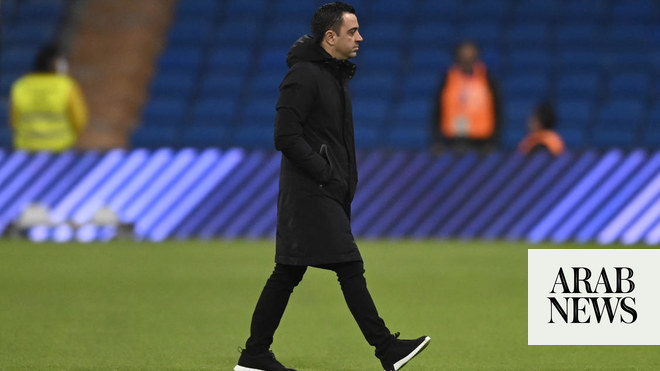
One thousand games not out, and Jamie Cureton has no plans to hang up his boots anytime soon. The 43-year-old, whose name is synonymous with a ripple of the net, has devoted his life to the game he loves so dearly but even he does not know the secret to his longevity.
Cureton’s phone buzzes away throughout the interview, the congratulatory messages flooding in after making his 1,000th competitive appearance in a tailor-made shirt bearing the same number to reflect his incredible achievement.
Cureton, these days the co-manager at Bishop’s Stortford, scored twice in the Isthmian League Premier Division match. After starting his career at Norwich in 1994-95, Cureton has scored in every season since, having found the net in all the top eight tiers of English football.
This is supposed to be the twilight of a 25-year career spanning South Korea to Swindon but the sprightly, evergreen Cureton remains a defender’s nightmare. Even now, the Bristolian relishes each game, each goal.
After taking his tally to 22 for the season against Brightlingsea Regent on Easter Monday, Cureton, a shoo-in for the division’s golden boot with a game to play, was withdrawn to a standing ovation, in front of 30 friends and family, most of whom are based in the West Country, including his parents, Chris and Mary. His eldest children, Ella and Harvey, surprised him.
“At 9am they told me they couldn’t make it because they were working but seeing them outside the changing rooms at 2 o’clock, I was quite emotional,” Cureton says. His three-year-old son, Roma, was the mascot. As for the commemorative shirt, Cureton assumed it was for presentation purposes, before learning the club received special permission from the league so he could play in it.
His latest milestone inevitably puts him in esteemed company – Cureton is reportedly one of only 29 players in the world to reach such a landmark, alongside Roberto Carlos, Xavi and Raúl, among others. “For outfield players, it is quite rare. It hasn’t properly sunk in yet. To be in that bracket in world football, it’s outrageous. I’m very proud. From the age of seven, when I went to a soccer camp with Bristol Rovers that was meant for 10-year-olds but we lied about my age, I have never done anything but football.”
The buildup to the day was laced with a nervous energy but now it is out of the way, is there another target? After a splutter of laughter, he replies: “People keep saying I have to go for 400 goals now.” He is on 361 and counting.
Cureton sees “no reason to retire” and has agreed to play again next season. Could he still be playing at 50? “If I can still move, that wouldn’t be a problem. If I’m still playing at around 47, that could be a target. But I have a few more years until we get there. We’ll see.”
Even Cureton does not know the answer to the million dollar question. “I don’t know how I’m still doing it. I’m very conscious of my food, diet, recovery and just looking after my body. But I think the biggest thing is my drive, my hunger to still play. I suppose I don’t ever want to quit. I love playing so much, and that’s why I keep pushing myself so hard to keep playing.
“My body tends to go along with me at the moment so I’m grateful for that, having those genes or whatever it is that allows me to keep playing. You would have expected my body to break down by now but, thankfully, it hasn’t.
“It is all well and good wanting to play on, the drive and the hunger and all that – but you need your body to still keep going. I’m playing 90 minutes every week – it is not like I’m playing a bit-part – and it is a bit freakish, really. It’s strange, but I’m very grateful because it’s given me a very long time in the game that I love.
“I will definitely play next year and we’ll see how long I can keep going. I do nothing out of the ordinary; I don’t do yoga, pilates or anything like that. I just try to look after myself.”
These days Cureton also helps the next generation as a part-time under-16s coach at Arsenal, keen to unearth a new wave of goal poachers. “It’s hard to teach,” he says. “It seems like a dying breed, being an actual No 9, an out-and-out goalscorer. With modern football, a lot of kids want to get on the ball and dribble, and be more involved, so I am trying to find those little diamonds who just want to score. The game has changed a bit but at the end of the day you still need someone to put the ball in the net.”
For tomorrow’s youngsters, Cureton’s advice, knowledge and experience is priceless. When he made his debut as a baby-faced teenager at Norwich, football’s drinking culture was rife. “The game has moved on a helluva a lot. In the early days, when I was coming through, you trained hard and played hard. Everyone did it, so it didn’t affect anyone. Then you had the change in the late 90s when the sports science came in and that culture started to fade out.”
There is a bit of Cureton that is scared about the day he does leave playing football behind. He is a household name in the Football League after fine spells at Reading, Bristol Rovers and Exeter but, when the time comes, Cureton feels stepping into non-league after leaving Dagenham & Redbridge in 2016 has “weaned” an inevitably tricky transition.
“I think if I stay in football, I’ll be OK. If I carry on in some capacity – coaching, managing, media, anything … as long as my life still revolves around football, I’ll be all right.” The Guardian Sport












